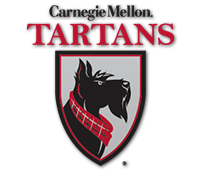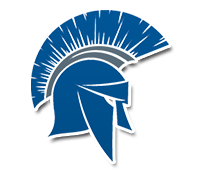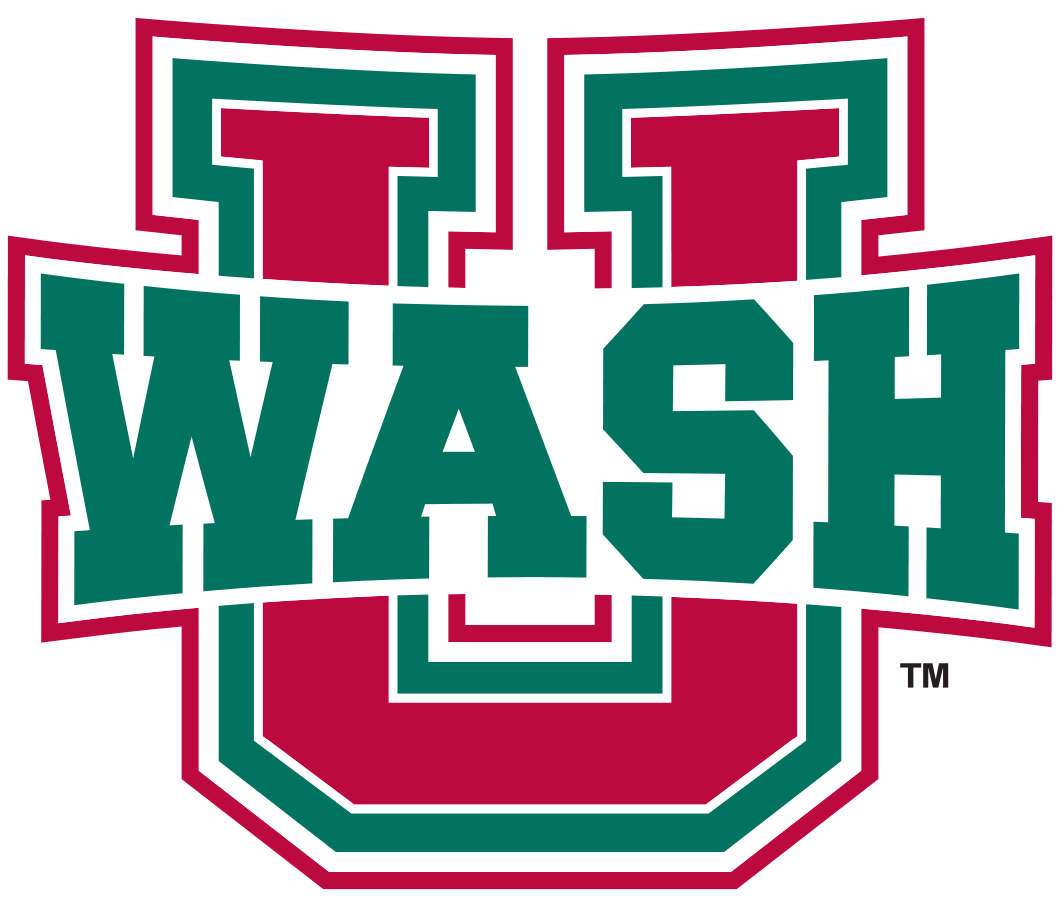
While studying pre-med/philosophy at NYU, Hany Abdallah earned nine All-America honors with six in track & field and three in cross country in addition to leading the Violets to the 2007 NCAA Division III Men's Cross Country team title.
The three-time first team All-Association cross country runner and member of the UAA 25th Anniversary Men's Cross Country Team earned UAA Rookie of the Year honors in 2004 and individual medalist honors in the UAA Cross Country Championship in 2005. He added first team honors in the 10,000-meter run at the 2007 UAA Outdoor Track and Field Championships and the 3,000-meter run at the 2008 UAA Indoor Track and Field Championships.
With all his success, Abdallah concedes he could have accomplished more. "I was very hard-headed and didn’t listen to Coach (Nick McDonough) a lot," Abdallah remarked. "I would have done bigger things if I had been a lot less anti-structure. I should have listened more. I immediately started running more than everyone else, which angered my coach and my teammates. I just knew I had goals and intentions and became so focused on them."
"Part of his struggle was he felt more was always better," McDonough recalled. "He did not understand that a coach could see the whole picture. He never wanted to stop. He would go by the theory, 'I feel good today, I am going to work hard.' You feel great and keep feeling great until you don’t. He wanted to be so good and worked really hard without thinking of the effects on his body."
ALGERIA
Abdallah lived in Algeria until he was 10 years old and his family moved to Northern New Jersey. "Their system is corrupt and non-efficient," he stated. "The 1990's was a very dangerous time there with political warfare between terrorists and the government."
The warfare, referred to as "La Sale Guerre" (French for "dirty war"), may have killed as many as 200,000 people from 1991-2000. The Abdallah family moved in 1996. "We were in the thick of it," he remembered. "I have seen, and run away from, terrible things. I ran a lot."
His experience in Algeria and coming to the U.S. gave him a perspective not a lot of college students have. "It was an invaluable experience and it was also a little unfair," he remarked. "My dad sacrificed his career. My mother and father left their families to come here. That has always been my driving force in being successful. I am really happy to be here and appreciative of the decisions my parents made."
HIGH SCHOOL
Abdallah was a late starter in running, focusing on soccer through most of high school. "I began running in the summer after my sophomore year to train seriously for soccer," he stated. "When I was junior, I ended up being really fast on the field. The track coach saw me and said I should join the team."
He did well in his first season of track his junior year and focused on increasing mileage the summer before his senior season. "That summer, I was running about 20 miles per week," he stated. "My body wasn’t ready for more at that time. I was reading a lot about training. A guy one town over was running 80 miles a week. My body was not used to running long distances and didn’t have the strength for that."
In the fall, he began running cross country, though he missed playing soccer. "At one point I quit the cross country team and my mother yelled at me," he laughed. "She told me, 'Stick with it, don't be a quitter.' I didn't like running. I was just using it as a means to an end and I wanted to reach back to soccer. Eventually, I came back to run cross country." By spring track, Abdallah was running faster times and capped off his high school career with a top-10 finish in the two-mile run at the state's meet of champions.
His interest in NYU came by chance. "I was in the gym and a friend sat next to me," he said. "He had a flyer of a presentation from NYU at our high school. I didn't even know what NYU was at the time, but I added Coach McDonough to the list of college coaches I was e-mailing. No one reached back to me except him and we kept talking. I applied early decision and I got in."
"At that point, he had no idea what he was doing," McDonough said. "He asked me, 'Coach, what should I be doing?' and I said run more. If your coach tells you to run five miles, run seven. As he got better, he asked for more pointers. He turned into a very good recruit."
"Coach got me really excited to run there and I really amped up training that summer before college," Abdallah remembered. "Starting college was exciting. I was getting better and faster."
COLLEGE YEARS
Things got off to a great start for Abdallah at NYU. In addition to earning UAA Rookie of the Year honors at the 2004 UAA Cross Country Championship, he helped lead the Violets to a fourth-place team finish, their best since 1999.
The following year in Pittsburgh, the Violets moved up to third place behind Abdallah's first-place individual finish. He went on to earn his first All-America honor at the 2005 NCAA Cross Country Championship with a ninth-place finish.
"I got injured before the end of spring season my freshman year," he recalled. "I didn’t train at all that summer. In the fall, I started running a lot and did well at UAAs and NCAAs. I didn’t win very many races in my career, but I was really happy I won at UAAs. I was running against people I knew and respected."
McDonough believes the eventual national championship team was set up by those two years, particularly by Abdallah. "Hany lit a fire under everybody. He wanted to do more and be more successful," he remembered. "It meant a team that was working hard and willing to do the work. He was the first guy to say we can work harder and be more successful. The other guys bought into it. His getting others to buy in allowed me to increase the volume and intensity of the training. No one wanted to say they didn’t want to work that hard. His intensity made others want to work harder. One of his biggest contributions was working hard and getting others to do the same."
NYU did not qualify for the NCAA championship in 2005 and Abdallah said that set the tone for the following season. "We didn’t make (nationals) my sophomore year and that really drove us the following year," he said. "We were focused on getting revenge and a lot of guys stepped it up. In order to be national champions, you need to have everyone perform consistently. We were a lot more focused, talking a lot more about running, having a frame of mind of performing well, and keeping distractions to a minimum."
The 2006 UAA Cross Country Championship was the first big step for the NYU program as the Violets won their first of what turned out to be four consecutive Association championships. Abdallah and teammates Jon Phillips, Jesse Schneider, and Ryan Williams all earned first team honors. The Violets capped off the season by finishing second in the 2006 NCAA Division III Cross Country Championship with Abdallah placing 14th, one spot behind Phillips.

In spite of Abdallah's continued success in the track season, things were not going as well as they seemed. He garnered his first All-America honor in track by placing sixth in the 5,000 meters at the 2007 NCAA Division III Indoor Track and Field Championship, but just a few nights before that he pulled back-to-back all-nighters. "I never had the time to study properly during the season so I would push myself at exam time," he said.
At the 2007 NCAA Division III Outdoor Track and Field Championships, Abdallah finished fourth in the 10,000 meters and sixth in the 5,000 meters. However, that semester included a major conflict. "I had a physics exam and a race at Van Cortlandt Park at the same time," he recalled. "The professor said I would get a zero if I didn’t come to class. It was strange to me as we had met the NYU president before and now I was in this situation. I didn't go to the exam and it was bad for my grade as a whole. It was a very hectic time for me."
"By then, running wasn’t fun anymore," he recalled. "My training was rigorous. I would go at a 5:45 pace, 110 miles a week. I would lay down on the couch in the training center and Coach was upset, telling me, 'You are leaving it in your lungs and not in your races.' All the training I did to try to improve from sophomore year, it really didn’t help that much and I didn’t even win at UAAs. I didn’t progress and grow properly as an athlete. I knew I disappointed my coach and frustrated him. I never reached the same level in races that I did in practice."
"Another goal of mine was breaking 14:00 in the five kilometers," he added. "Coach said it was definitely possible based on my workouts. I actually raced slower and it was really frustrating. Going into senior year, I never took breaks and just kept running and training. I was not letting my body recoup."
The Violets dominated the 2007 UAA Cross Country Championship with Abdallah earning first team All-Association honors for the third consecutive season. However, his pre-med schedule and his mindset meant he was training a lot by himself that fall. "I did a lot of training on my own, going longer and faster," he stated. "I liked training with Ryan Williams, but our schedules did not match. I was physically and mentally separated from the team, focused on my own performance. I did well, which helped the team, but I feel selfish now looking back on it. I could have enjoyed it more."

2007 UAA Men's Cross Country Champions: NYU
"He liked doing his run at his pace," McDonough recalled. "In general, guys are staying together for most of the run on a recovery day. He would run after he had a lab instead and run too hard." Abdallah represented a unique challenge for McDonough. "He never undermined the coaching staff. He just wanted to do what he thought was better. He never wanted to dog it and he would never do less. He would overwork himself. That mentality that was not always the best for him, but did help get us to the next level. He got his teammates to buy in and they were running 90-100 miles a week by their junior and senior years."
NYU reached the pinnacle of NCAA Division III cross country by capturing the national title at the 2007 championship with Abdallah leading the way with his ninth-place finish. "Those 2006 and 2007 teams were very strong, not just in Division III, but on the East Coast," McDonough commented. "It was a great group of guys, very strong athletically, and very close."

"I am happy it worked out that way because the national championship really brought everyone together and was the culmination of a lot of hard work," Abdallah remarked. "One of the things that made it hard to do everything was all the trips we took, but it had a lot to do with why were so successful. Coach was very good and he wanted us to develop and to have different racing situations. We were well trained and well-developed. I really appreciate now what happened."
He continued to excel through the track season despite his self-admitted struggles and inability to juggle things and enjoy running. He placed a career-best third in the 5,000 meters at the 2008 NCAA Division III Indoor Track and Field Championships and rounded out his career with two more All-America finishes at the 2008 Division III Outdoor Track and Field Championships, finishing fourth in the 10,000 meters and eighth in the 5,000 meters.

Abdallah has had a long time to reflect upon those years at NYU. "It is nearly impossible to realize your own faults as you are committing them. It took a long time," he said. "You start to blame others and then you grow and blame yourself. As you grow more, you realize there was no one to blame. That is just the process in learning things and growing from them. I learned a life lesson that now applies to my life in medicine. It is along the same lines as my bosses are like my coaches. A lot of what we do is based upon experience. Now people's lives are at stake rather than my own races."
MEDICAL SCHOOL
"I never particularly wanted to go to medical school. I thought about a liberal arts graduate program, possibly in philosophy or linguistics," Abdallah remarked. "I didn't want to spend all my time studying again, but it was a way to become competitive. I was challenged by medicine."
The same things that attracted Abdallah to running applied to medicine. "I never ran for leisure or for the experience of running," he said. "It was always to train and get better. I liked competing more than running. I related that training to medical school. You can never master medicine. I studied all day and night, becoming fanatical learning about medicine. Competition drove me then and it drives me now. It is very rewarding, especially now because I enjoy seeing the people who get better from my labor."
He began his medical training in surgery and although the competitive aspect appealed to him, he knew it was not how he wanted to spend his career. "I did not like it at all," he commented. "Even in medicine, you don't have to be in the most competitive things to be the best and you can still have a life outside of work."
After graduating from the University of Vermont Medical School, Abdallah moved back to New York City and has been working in internal medicine at Mt. Sinai Hospital. "I finally have work-life balance and I am starting to appreciate it," he stated. "Committing yourself 100 percent every day is not feasible nor sustainable. We are seeing that a lot in modern medicine. A lot of things are changing about residency and work hours because research shows how detrimental working too hard can be."
He is thankful to have discovered the right field of medicine for him. "Fields like surgery are more likely to keep you from the work-life balance," he stated. "In surgery, with every step forward, I was taking two steps back. Sometimes you don't even see how work has taken over until the world around you shows you the negativity, whether it be your family, significant other, and/or friends."
BALANCING FAITH AND DAILY LIFE
This year Ramadan, a month in which those of the Islamic faith fast from dawn to sunset, began on June 6, but Abdallah recalls during his days at NYU it came during the cross country season.
"I was running and not eating or drinking during the day for a month," he recalled. "I broke for a few days for races, but otherwise I fasted. One time, nationals was right in the middle of Ramadan and I determined it would have been counterintuitive to train all that time and then put myself at a significant disadvantage. I didn't want to be under-nourished."
"Coach was always very respective and it was my choice to break my fast a couple days a month," he said. "I would seek counsel from my mother and she was always great about it. Fasting had to be detrimental to my running and school, but I didn't think it was."
Now in his work career, Abdallah again tries to find that balance between faith and his regular routine. "It is a very personal choice. That is what faith is. It is you and your own beliefs," he remarked. "I never wanted to take the easy way out. If you are committed, you have to do it for yourself and not for others. You get lost in religion if it is more culture than faith. It becomes something more important that the entity itself, more important than your connection, externalized more than internalized."
Since completing his career at NYU, Abdallah has done very little running. "I started back up a couple of times, but it only lasted for a few weeks each time," he commented. "Then in February of this year, I began running again and got up to 20-30 miles a week, but I started losing a lot of weight (his running weight in college was 130 pounds, 35 pounds less than what he weighs now) and feeling really tired. It started to hinder my work and became stressful. It lasted until June, but I wasn't enjoying it and then Ramadan started so I put a lid on it."
REFLECTION ON NYU
"I have always been someone who doesn't appreciate what I have in the moment, but I look back and appreciate it," he said. "I look back on my time at NYU very fondly. It is the same thing with medical school. I didn't want to go, but now I appreciate it. It makes you understand that whatever the outcomes, there was a reason for what happened and that development leads you to somewhere else."
In spite of his individual success, Abdallah values what he and his teammates accomplished together the most. "What was really important is that we won as a team," he said. "We could see it happening, but it came so quickly and vigorously, I couldn't believe it. Nick never had us focus on what other teams were doing. He knew so well how to develop us as individuals and as a team together. He could tailor everything for each person, which is very hard to do. He was the perfect coach for us; he knew us athletically and socially. None of it would have happened without him. We were very close to him and he was like a dad to us."
"He was a true UAA success story," McDonough stated. "He was a solid high school runner who went to NYU, a good academic school that took athletics seriously. He was committed and kept improving. He is a great example of the UAA student-athlete who was in the right setting at the right time."
"The team we had then was very close and they are still best friends," Abdallah said. "I had been away for so long and when I came back, I saw how close everyone remained. It becomes a brotherhood and that is what really matters. We reminisce a lot and it is a lot of fun."
Abdallah often ran with Williams and was one of many teammates who attended Williams' wedding. "We always wondered what an appropriate time to wear our championship rings was," he commented. "Ryan was wearing his at his wedding. It was the perfect use!"
His time at NYU prepared Abdallah well for his career and life. "It was more an education in understanding the dynamics of life more than what I learned in the classroom," he reflected. "It taught me a lot about how to approach certain aspects of medicine. When I need help and an experienced mind, I seek that out. I don't take it for granted. My decisions are a lot more important now. It used to be racing, something that could always be fixed. In medicine, the smallest mistake can be detrimental."
"There is a saying in medicine," he added. "'See one, do one, teach one' and that applies to anything from treatment to a procedure to surgery. Once you have kind of learned the process, you start to appreciate the nuances, both in medicine and life."
Coming to appreciate difficult times has been part of the learning process for Abdallah. "When I got into medicine, I understood the benefit of pain," he stated. "That is part of learning about life, that there was a reason whatever particular thing happened. You grow to have a profound perspective."
"I have learned in all things - medicine, school, running, life - to strive for balance," he concluded. "In running, I had a certain level of talent, but I tried to exceed beyond my talent with my drive. My journey has taught me to get the most out of life. You can't always be the best because there are limits, but you can push yourself to do all you can do."























